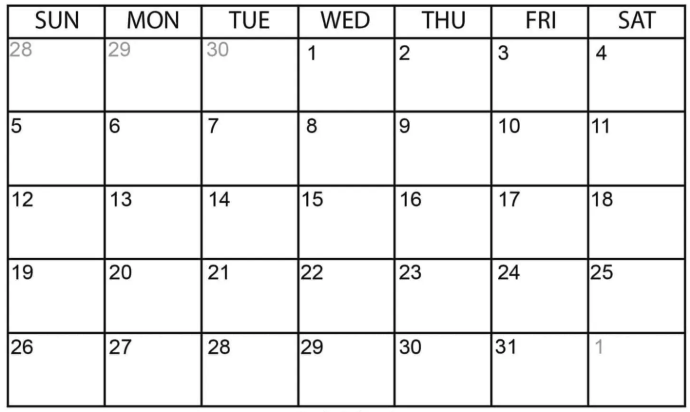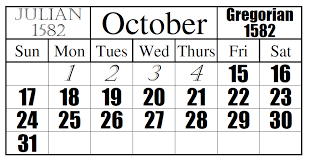Converting Between Calendars AKA October MOSTLY Has 31 Days
[C#, .NET, Dates]
Quick, how many days does October have?
This year’s (2025) has 31 days.

Can we therefore say all Octobers have 31 days?
Nay!
Because October 1582 looked like this:

11 days are missing!
This was due to the switch from a Julian Calendar to a Gregorian Calendar.
This presents an interesting problem in code - how do you represent dates when converting between calendars?
Suppose we were writing code that needed to be aware of the fact that 5 October 1582 does not exist, as it was replaced by 15 October 1582.
For this, we turn to the NodaTime library, specifically the LocalDate class.
//Create the date in the Julian Calendar
var julianDate = new LocalDate(1582, 10, 5, CalendarSystem.Julian);
Console.WriteLine($"Julian: {julianDate}");
//Convert the date to the Gregorian calendar
var gregorianDate = julianDate.WithCalendar(CalendarSystem.Gregorian);
Console.WriteLine($"Gregorian: {gregorianDate}");
This will print the following:
Julian: Friday, 5 October 1582
Gregorian: Friday, 15 October 1582
The following are some other dates where days were adjusted:
| Julian Date | Gregorian Date |
|---|---|
| 4 Oct 1582 | 14 Oct 1582 |
| 2 Sep 1752 (UK) | 13 Sep 1752 |
| 14 Feb 1918 (RU) | 14 Feb 1918 |
There is also a problematic year, 1900, that was a leap year in the Julian calendar but wasn’t in the Gregorian calendar. This has famously led to a debatable bug in Microsoft Excel.
TLDR
Calendar conversions are crucial for accurately performing date arithmetic. This can be done using the NodaTime package.
The code is in my GitHub.
Happy hacking!